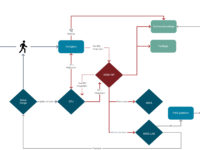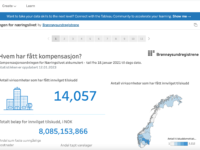To help citizens, health professionals and authorities to handle the Covid-19 pandemic, TISK IKT, a set of interconnected digital solutions, was set up by the Norwegian Directorate of Health. Through exchanging health data, it set a national record in cooperation between 9 government agencies and the medical association to innovate new digital solutions at extremely high speed.
Case Study Library
Where innovations are collected and shared to disseminate and replicate good ideas

Innovations:
0
This website, as well as any data and map included herein, are without prejudice to the status of or sovereignty over any territory, to the delimitation of international frontiers and boundaries and to the name of any territory, city or area.
The digital compensation scheme was created to support Norwegian businesses to endure the financial consequences of the Covid-19 pandemic. The scheme designed was quick, efficient, and can be relaunched when needed. Checks are done before the disbursement, which minimizes the need for verification afterwards and also prevents misconduct. Applications are approved by an auditor, and then automatically processed and checked against information from a variety of sources and registers. Information…
The Ukraine war established a commitment to work across sectors to improve digital services to refugees. Focus on end user needs and an unbureaucratic organizational model have produced tangible results such as:
Better update of address information in national register
Electronic identification - access to digital services
Twelve agencies worked with obstacles and bottlenecks in the refugee's user journey, with the objective of good transitions between services.
Service shop, developed by the municipality of Larvik:
- is an online booking and calendar solution that allows service recipients to determine the time of receiving municipal services based on the recipients own calender and wishes
- is a secure solution that takes care of the privacy of the service recipients
- makes it easier for the employees to plan their days, the service order automatically generates employee workflow.
The Asker Welfare Lab is a lab guided by the principle: "No decision about me, shall be taken without me."
Asker Welfare Lab is a concept for service delivery, solely centered on the citizen, in which all relevant municipal services, together with external partners of collaboration, invest together, aiming to raise the living standards, thereby bettering the quality of life of each individual and family in the program. All the services do still have one common factor - the citizen. Their…
The service concept is based on findings in two previous studies in the field of social housing conducted in Sarpsborg: The findings showed that our municipal services were fragmented and complex. But, they also showed that the number of homeless in Sarpsborg was lower than the average on a regional and national scale.
Housing conditions are of importance for people’s lives, health development. We decided to do more of what we did well, and improve it. This brought about the project Way Home.



